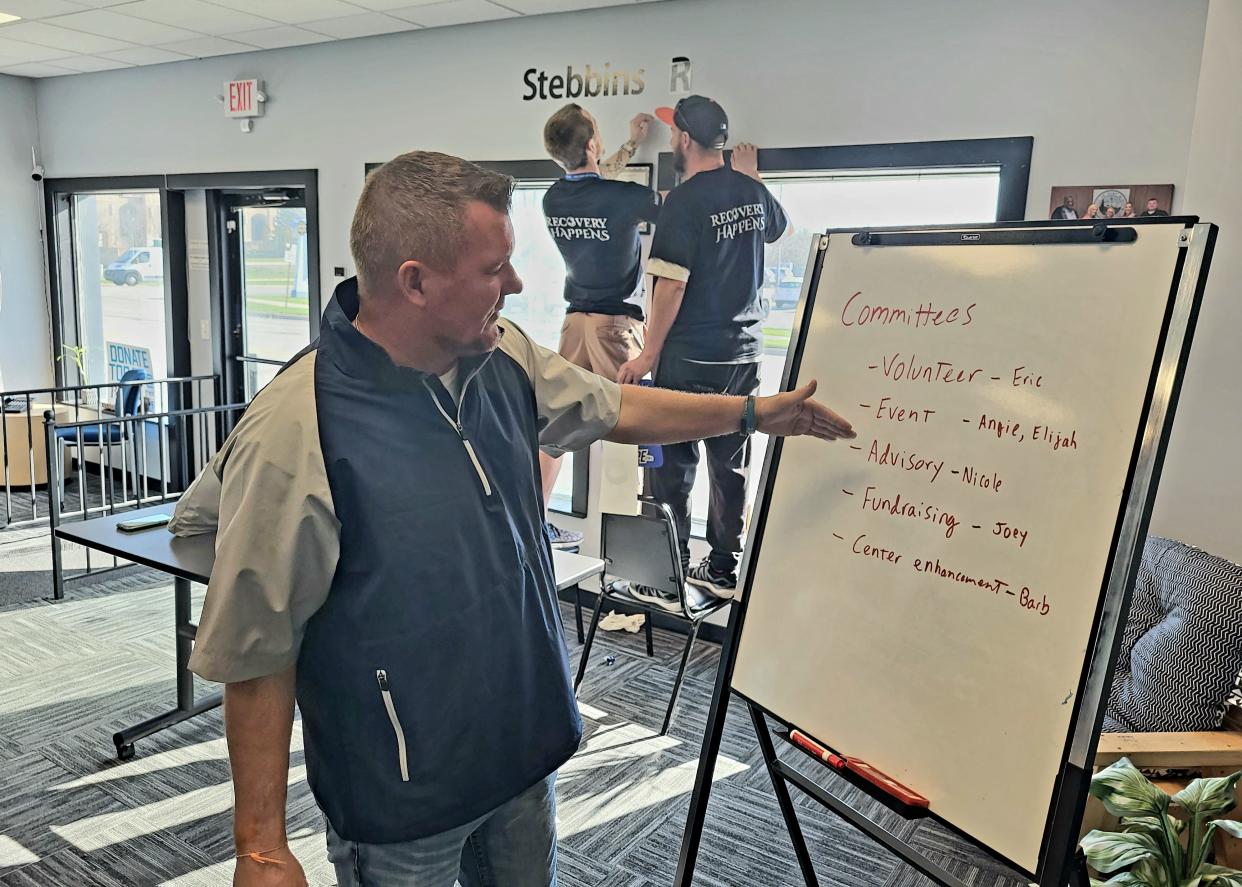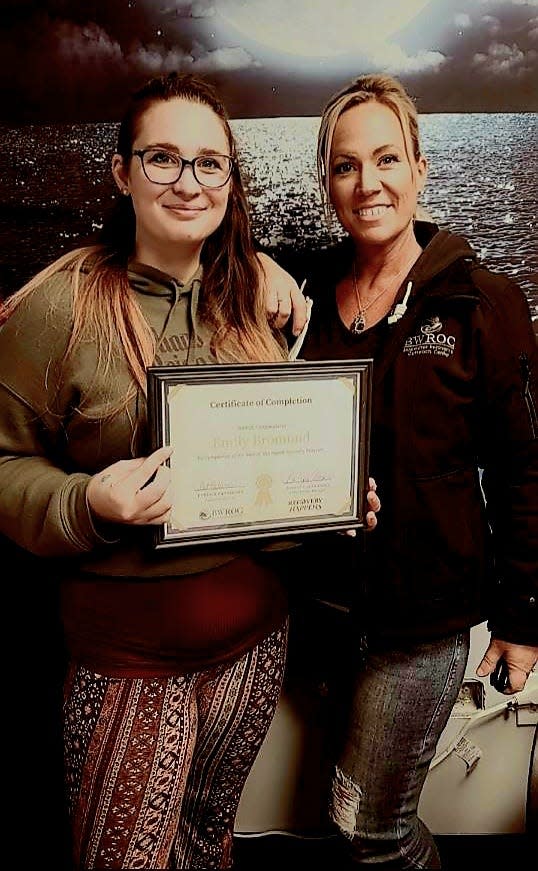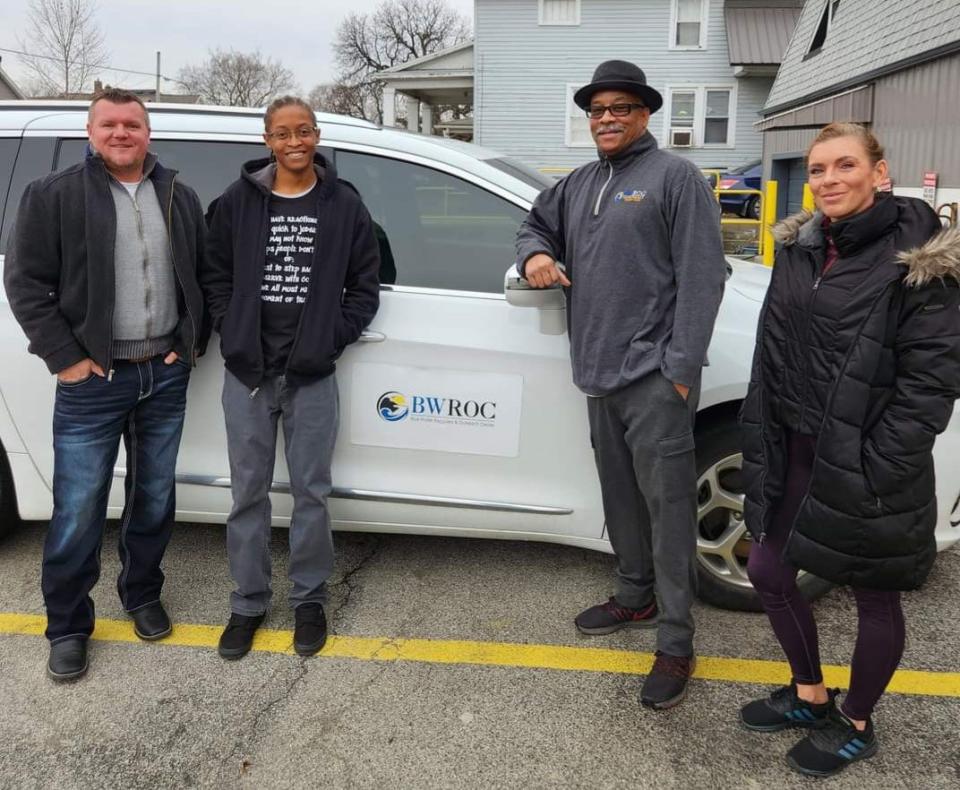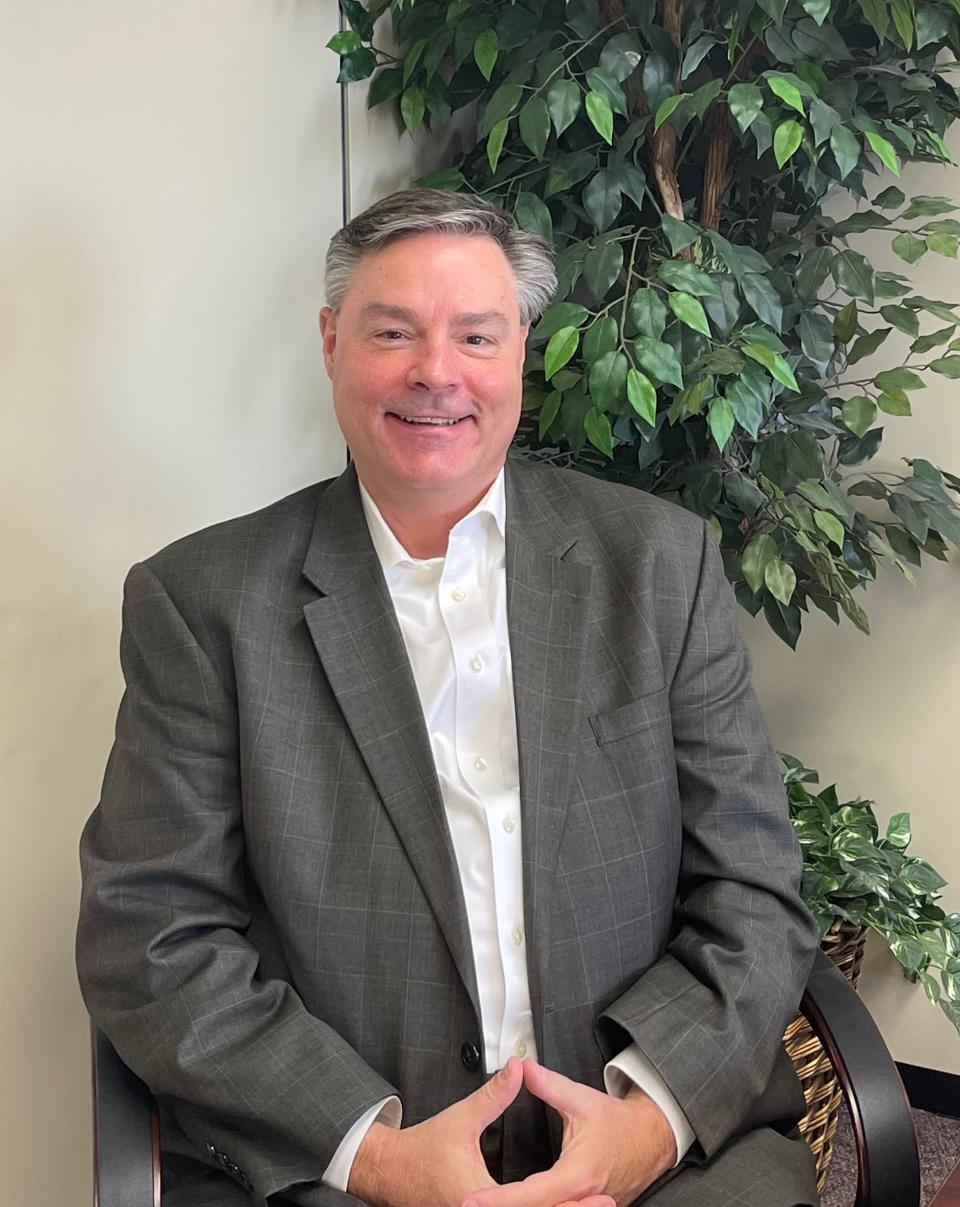‘With open arms’: How local nonprofits are spending thousands in city ARPA funds

Emily Bromund said she’d driven by Blue Water Recovery and Outreach Center “a bunch of times” before she ever entered the 10th Street facility.
But once she did, it was only a matter of months before the center — newly robust in staffing and structure with the help of a financial boost from the city of Port Huron — helped her complete their program, get back to work, and take care of herself and her kids.
“Actually, the day I walked in, I was under the influence of something. It was after closing time, but Barb was there for some reason. She let me in anyway with open arms, got me an appointment for the next day, and then, that’s when I started working for them and working on getting sober and clean,” Bromund said in an interview Thursday.
She was referring to BWROC recovery coach and manager, Barb Alexander.
“And then, that’s when I started working for them and working on getting sober and clean,” the 29-year-old said. “It’s been about seven months, and I’m now running the women’s group, and I help as much as I can.”

Bromund’s recovery effort is one of many organizers credit in the expanded reach BWROC was able to accomplish with $415,215 allocated in early 2022 by City Council members from Port Huron’s share of American Rescue Plan Act funds.
That included more than $300,000 of COVID stimulus going toward two additional recovery coaches for three years and another $100,000 going toward a van, building renovation, office equipment, and more.
Still, BWROC isn’t the only nonprofit receiving thousands in ARPA grant support from the city.
They provided an update to City Council at a meeting earlier this month.
The Blue Water Area Chamber of Commerce, which received $200,000 for a tourism push in Port Huron, has presented to council, as well — earlier this year when officials also OK’d another $12,000 in ARPA funds to go toward a new marketing campaign.
Other organizations’ status in providing a public update depends.
The Economic Development Alliance of St. Clair County, which also received $200,000, is still in the middle of its two-year effort to support local businesses, and CEO Dan Casey said they’ve provided a progress report to administrators but haven’t been asked to come before council.
Meanwhile, two other organizations — the People’s Clinic for Better Health and the St. Clair County Child Abuse and Neglect Council — are expected to amend their original ARPA proposals this spring.
Either way, where funds have been spent, local leaders said they’re seeing progress.

Stimulus boost helping hundreds put their 'recovery first'
Walking through BWROC’s building at 617 10th St., several upgrades to the building are clear.
The interior’s been rehabbed, there are multiple private offices for one-on-one recovery coaching, and a barn-door divider connecting two gathering areas. In the latter, staff, volunteers, and those in recovery can split their time between recovery yoga, group meetings, and socializing.
Patterson said they hold 30 to 40 meetings each week. They’ve also established BWROC committees, with specialties focusing on volunteering, events, advisory needs, and fundraising.
But a lot of the other progress the center has seen isn’t tracked in its physical space, which also got a boost from other foundations. The renovations of the building itself cost just over $100,000.
It’s in the number of people passing through their door.
“Four years ago, our 800 number rang here,” Patterson said on April 14, holding up his mobile phone.
“I was raising money in the first year, and we raised $13,000. In year two, we raised 40,000. In year three, we raised 60,000. Then, we raised 159,000. Then, 293 (thousand). Then, 449,000,” the director said. “At the same time, in the first year, I was helping one person every three days to, now, 200 people are coming through per week. We did 33 intakes last month, so that’s for our recovery coaches. We had 1,440 recovery coaching meetings in 2022.”
Patterson said he understood they weren’t the only recovery game in town, but he added they were grateful for the city’s grant and the progress it afforded them.
“It’s about a collective group of people that pour their heart into others,” he said.
For Bromund, the center is helping her work toward new goals, such as getting a full-time teaching position while also getting through a divorce, trying to keep her house, and staying active in the community – all while “keeping my recovery first.”
CAN council, People's clinic amending original ARPA plans
The child abuse and neglect, or CAN, council first got the OK to receive $380,780 in ARPA funds in spring 2022. Mayor Pro Tem Sherry Archibald, who’s the council’s executive director, abstained from the original council vote.
It was in 2021 when the People’s Clinic’s recommended award of $500,000 first arose.
Neither since, however, have been used. City Manager James Freed said that’s because organizers haven’t officially signed on the dotted line, and each is expected to update their plans.
Overall, local governments have until the end of 2024 to designate ARPA funds. The vast majority of the city’s roughly $18 million has been allocated or spent.
Archibald said the original proposal itself — paying for two new mental health therapists to work with children impacted by abuse over three years — hasn’t changed. What has, she said, is how they’re filling those positions.
“What we have is anywhere from a four-week to a three-month waiting period for children to be served because there’s a shortage of trauma-focused mental health therapists in our community,” she said. “We submitted the application to the city in hopes of being able to reach out and hire. We tried for months on end. We weren’t able to find anyone for a multitude of different reasons.”
One of those was that “everyone is looking” for new staff, she said, among all service organizations. The other was that so many counseling operations are going virtual with teletherapy, which she said wouldn’t work for children.
So, instead, Archibald said they’re planning to hire two interns, who’ve been with them for six to nine months, full-time once they graduate and get their licenses. She said they hope to start them on May 15, updating City Council at one of the next two meetings.
Archibald added the CAN council is also putting some of its existing fundraising dollars toward the added counselors to make the effort work while using the next three years to identify another funding source to keep them on board once the city’s funds are spent.
Though the biggest goal, she said, is to ensure child victims of abuse aren’t waiting — and later facing potential revictimization — for the support they need.
Originally, the People’s Clinic was slated to use its funds on a bigger space on the Lake Huron Medical Center campus, allowing them to expand clinic hours, add support personnel, and work with Blue Water Transit to get a designated bus stop.
But Mallory Michaluk, foundation director at the hospital, which includes overseeing People’s Clinic operations, said they found it wouldn’t make sense to leave their current location at Community Mental Health of St. Clair County, where there’s already a bus stop and they can maintain integrated care for patients in one place.
Moving forward, she said they plan to pursue a mobile clinic instead, reaching out to neighborhoods and other community agencies.
“If everything goes through the City Council, we could have this mobile clinic unit as early as early summer,” Michaluk said. “I don’t want to put an exact date on it. But we have been speaking with a company that has done vehicles for different health care organizations around Michigan.”
In 2022, the People’s Clinic saw more than 1,000 visits, including from 738 Medicaid patients and 356 who were uninsured.
With the mobile unit, Michaluk said they can use existing staff and still better reach local residents over age 18 who aren’t established with a primary physician.
“We can provide health care, they have a physician to see, and that way they’re not taking up space in the emergency room, where it might not be as critical as someone else that needs those services,” she said.
EDA seeing slight shifts in business funding based on demand
The original proposal from the EDA OK’d by City Council included $50,000 each to a program that’d provide rental assistance to businesses locating operations downtown, another called EMERGE Port Huron to support start-ups through the EDA’s business incubator, and a competitive fund to issue grants and help businesses grow.
The rest of the $200,000 had been slated for $20,000 in marketing for talent attraction efforts and EDA support services, as well as $10,00 for business training courses.
Although they were still on track to spend all of the funding by the end of this year, Casey said they’ve seen some minor shifts in how much funding is being spent based on demand.
“There were two programs that were home runs,” he said. “One of them was talent attraction. Companies left and right were asking for money to try to spend to find people to give them signing bonuses or recruiting bonuses. That’s how Casey’s Pizza used it very effectively.

“…. But far and away, the most sought-after was the Port Huron EMERGE fund grants for start-up businesses. We could’ve given the whole 200,000 away just to that. We had so many applications last year. We had to stack things up a certain way because we just got done doing our own regular EMERGE fund program. We just awarded money a week or so ago.”
In all, Casey said “about a third of all the money” could go toward EMERGE. Another shift may be toward the rental subsidies downtown.
“There’s a need for money to support some of our existing businesses in the downtown,” Casey said, adding part of it comes as entities face difficulty investing amid higher interest rates and a rough hitch in the broader economy.
“We just got done interviewing a bunch of them yesterday,” he said. “And we are looking to perhaps up some of the money a little bit. We always go to the city, and we ask if it’s OK to slightly adjust how we’re spending the money. … We did not have a lot of money in rent subsidies in the first place. We might put a little more because I think there’s a need for it right now.”
Contact Jackie Smith at (810) 989-6270 or jssmith@gannett.com. Follow her on Twitter @Jackie20Smith.
This article originally appeared on Port Huron Times Herald: How local nonprofits are spending thousands in Port Huron's ARPA funds

